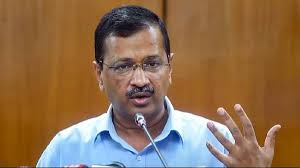
In a significant legal development, Delhi Chief Minister Arvind Kejriwal has secured bail from the Supreme Court, affirming a lower court’s decision despite challenges from the High Court. This decision, however, comes with stringent conditions that restrict his official duties until further notice.
Mr. Kejriwal, who was arrested earlier this year by the Enforcement Directorate in connection with an alleged liquor policy scam, continues to face legal challenges. The Supreme Court’s ruling allows his release on bail, but he remains incarcerated due to a subsequent arrest by the Central Bureau of Investigation in the same case.
Under the terms set by a bench comprising Justices Sanjiv Khanna and Dipankar Datta, Mr. Kejriwal is prohibited from entering his office or the Delhi Secretariat during his release period. Moreover, he is barred from signing official files unless it is specifically required for obtaining clearance or approval from the Lieutenant Governor of Delhi.
Additionally, the Chief Minister must furnish bail bonds totaling ₹50,000 along with a surety of the same amount. He is also directed not to interact with witnesses involved in the case or access any official files related to it, adhering to standard legal protocols in such matters.
Regarding calls for his resignation, the Supreme Court refrained from issuing any directive, stating doubts about its authority to compel an elected leader to step down from office. “We leave it to Arvind Kejriwal to make the call,” the court remarked, recognizing the significance of his position and the influence it holds.
Mr. Kejriwal’s legal battles have sparked public interest petitions, some seeking his resignation pending the resolution of legal charges. However, the court dismissed one such plea earlier, asserting it lacked legal merit and emphasizing that directives concerning governance fall within the domain of the Lieutenant Governor.
Sources By Agencies




